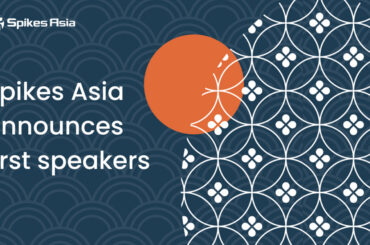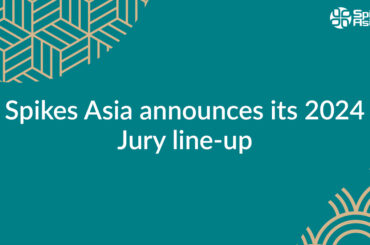The Day 3 began with a brief introduction and overview of Pubcon Las Vegas by Brett Tabke, followed by a keynote address by Scott Stratten. Named one of "America's 10 Marketing Gurus" by Business Review USA and one of the top 5 social media influencers in the world, his address was keenly awaited.
Scott Stratten addressing Pubcon 2013
People already had a copy of his latest book QR Codes Kill Kittens and were eager to have a piece of Scott’s mind in person.
Scott shared the data of Nooooooooooooooo button site, his ticket to fame. The average visit duration is 27 seconds, while the “Noo!” is just 3 seconds; so what are people doing for 24 seconds? There is more: 29% of them are repeat visitors! Scott thanked them. And the button, all it does is to play a sound of No!
He had the audience laughing when he discussed the keywords he ranked for – it was any version of ‘noo…s’.
Joshie story and unmarketing of logo
Scott discussed how Ritz Carlton went out of the way to return a kid’s lost toy. When the father got it, he tweeted it everywhere and blogged it for The Huffington Post. Here is the story. A kid left a stuffed giraffe at a hotel. When he was going nuts after getting back home, dad told him that Joshie was enjoying an extended vacation. Father called the hotel which went above the call of duty to find Joshie and send back to the family overnight. They even clicked photos of Joshie holidaying and made it a staff badge as part of the Loss Prevention unit and packaged it all to the family. Dad was impressed was free brand building for the hotel.
Putting the Ritz-Carlton logo back on the screen, Scott talked about unmarketing the logo. When we see the logo, we think what we know about the brand and not how cool a logo it is. Most of us think that better logo will be more effective, which is actually not the case. If a bed is hard and service sucks in a hotel, no one is going to care about the logo, or will we? People book a room at a hotel because of the service and not because of the logo. He successfully got home the point.
What customers remember about a company?
He called on audience to ask the customer what they remember about the company. It would be the last interaction with them or the extreme interaction. Brand is an organic entity and it changes every interaction. Marketing is everyone’s job in a company and not of the people with ‘marketing’ on their card.
Marketers screwing up QR codes
Scott was unhappy with the way QR codes are used for marketing. QR codes have potential, but marketing screws it up. The slide has a photo of an aircraft pulling a banner with a QR code and he ran across the stage feigning to take a picture with a cell phone.
Terming QR codes just better bar codes. Scott advised marketers to ascertain if the customers had adopted the technology yet.
Audience went bonkers at an epic rant of Scott. He saw a QR code on a website, scanned it and it took him back on the website! He explained how wrong use of a QR code makes people less likely to scan it next time. He said the main reason of businesses using QR codes was that they thought it was hip. Marketing is all about doing things worth talking about.
Scott now shared some insightful data. 85% people have a cell phone , 50% phones can scan a QR code, 17% have scanned a QR code, 50% were successful. This makes just 3.6% of people. Moreover, 99% of people can call with their phone (1% variance).
Why to dig into headline data?
Scott cautioned people to be careful about headline data and advised them to dig deeper with numbers. Data says 60% of G+ users signed in daily. The reality – it was 60% of Google account users signing in daily.
Marketers need to see what works for them. When an enterprise is using a social media site for SEO, it is not social marketing. Scott termed LinkedIn a contact management system, not a social network. Explaining spread of picture images on Facebook, he said that it is content in the picture that spreads. Create interesting content to make marketing a success.
Immediacy: so important in social media
Scott stressed immediacy is as important as authenticity on social media. This becomes even more important when one is trying to diffuse anger. He ranted how @DeltaAssist tweeted back an apology to him when he tweeted his 160k followers about an incident telling them to shun Delta. He was consoled. It could be worse if it was 3 hours or 3 days later.
Here is another example he gave to help marketers understand the importance of immediacy. A video showing a FedEx delivery man throwing a package over a gate without buzzing or anything went viral. FedEx responded by doing a great corporate blog post on the same day explaining what they did do for the customer and to the employee. They also posted a video from the Senior VP of US Operations. They made themselves look better by their immediate response. We are a forgiving society and if one owns the screw up, we are likely to forgive and move on. Stopping negative news from going viral is not something we can control, but we can respond with an applause-worthy interaction.
The feedbacks
Talking about the Unpodcast he had launched 5 weeks ago Scott termed it the most fun he has had in business. One of the feedbacks he received for a podcast was from someone who had not even listed to it. It was 56 minutes! Scott advised people to be careful about the feedback.
The keynote was replete with trademark Scott Stratten rants that provided the audience a deep insight in hilarious manner. He had people cracking up several times and they enjoyed his address for sure.
That is all from the Keynote of Scott Stratten. Do stay tuned for more sessions updates from Pubcon Las Vegas 2013.





